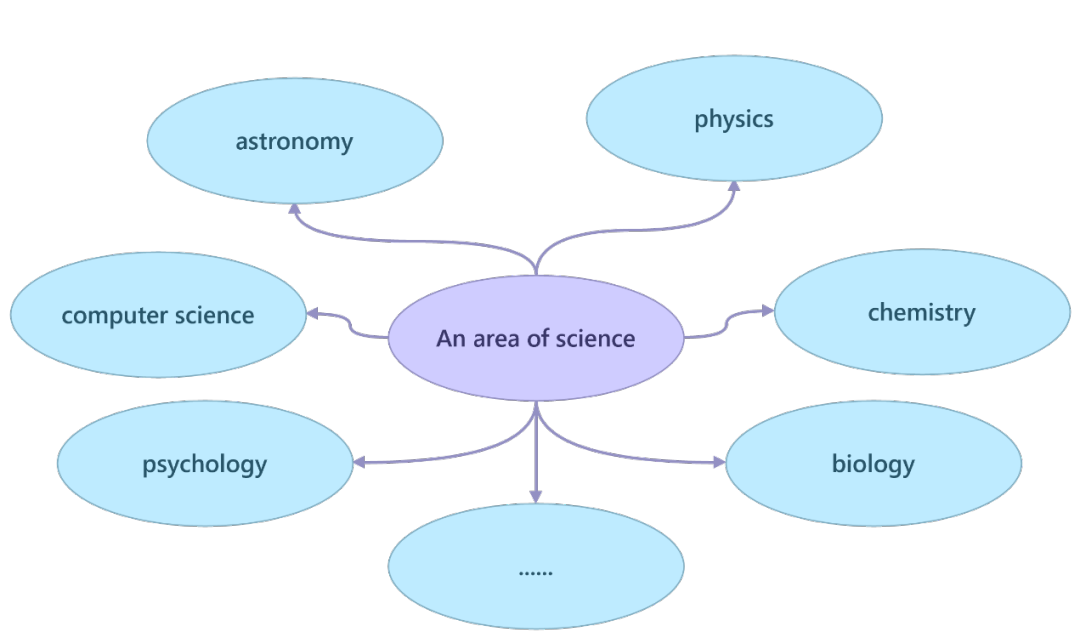Science 是口语话题中的一个常客,上个季度在Part 1部分出现,而这个季度又在Part 2里重现。
很多小烤鸭看到这个话题,会觉得无从下手,心想即便用中文描述2分钟也无话可说,何况用英文,更是瑟瑟发抖...
咱们今天便来聊一聊这个看似很难的话题吧。
首先,这个Part2题卡其实已经提示了我们可以从哪些方面打开思路,科学领域可以有很多方面,自然或者人文科学,例如: 但问题是如何具体来描述这个话题??根据已给的参考小点,我们可以概括成以下方面: 1. what it is + how you knew it 关于如何知道这个领域,我们首先会想到的是中学的科学课上所学,可以简单提到老师;但除了课堂,还可以从书籍、纪录片、科技馆等途径了解到。 例如: Well.. I’m going to talk about an area of science that I find interesting. It’s chemistry. I first learned it when I was in secondary school. At that time, I had a wonderful teacher, who taught me this subject. I’d say, it was pretty engaging / fascinating. In his class, we had hands-on science, In fact, at first, it was a real effort for me to understand different types of chemical reactions. 2. how you learned it +what you learned/why you are interested 第二、三部分是我们要侧重描述的方面。很多时候,一提到科学领域,想到曾经学到公式理论,可能会觉得枯燥。 其实不然,也有很多是hands-on science, 我们通过实验或者其他实践活动来探究科学问题。另外,关于具体了解的内容,我们可以联系生活进行举例,其实,各个科学领域在生活中的体现还是很常见的。 例如: Chemistry—e.g. there is chemistry in cooking. Like, baking soda can be combined with an acid to release carbon dioxide, which makes bread rise. Also, when we put salt on our chips, there is a chemical reaction happening that brings out the flavor of the food. 此外,美妆用品的制作其实也涉及了化学知识,这也可以是你对这个科学领域感兴趣的理由。 其他科学领域在生活中的应用也很多,例如,谈到Biology,我们可以结合Part1老题—insects, e.g. pollinating insects help crops to produce food.或者,在生物领域,也会讨论一些有趣的话题。 例如:Why Mosquitoes Bite You More Than Your Friends. 再比如,计算机科学中的人工智能(Artificial Intelligence)在我们日常生活中的运用也非常普遍,智能手机、智能家居、社交媒体、游戏等各个方面都有涉及。 因此,如果我们把科学领域和日常生活结合在一起,谈论这个话题时,我们就会有很多可说的方面。